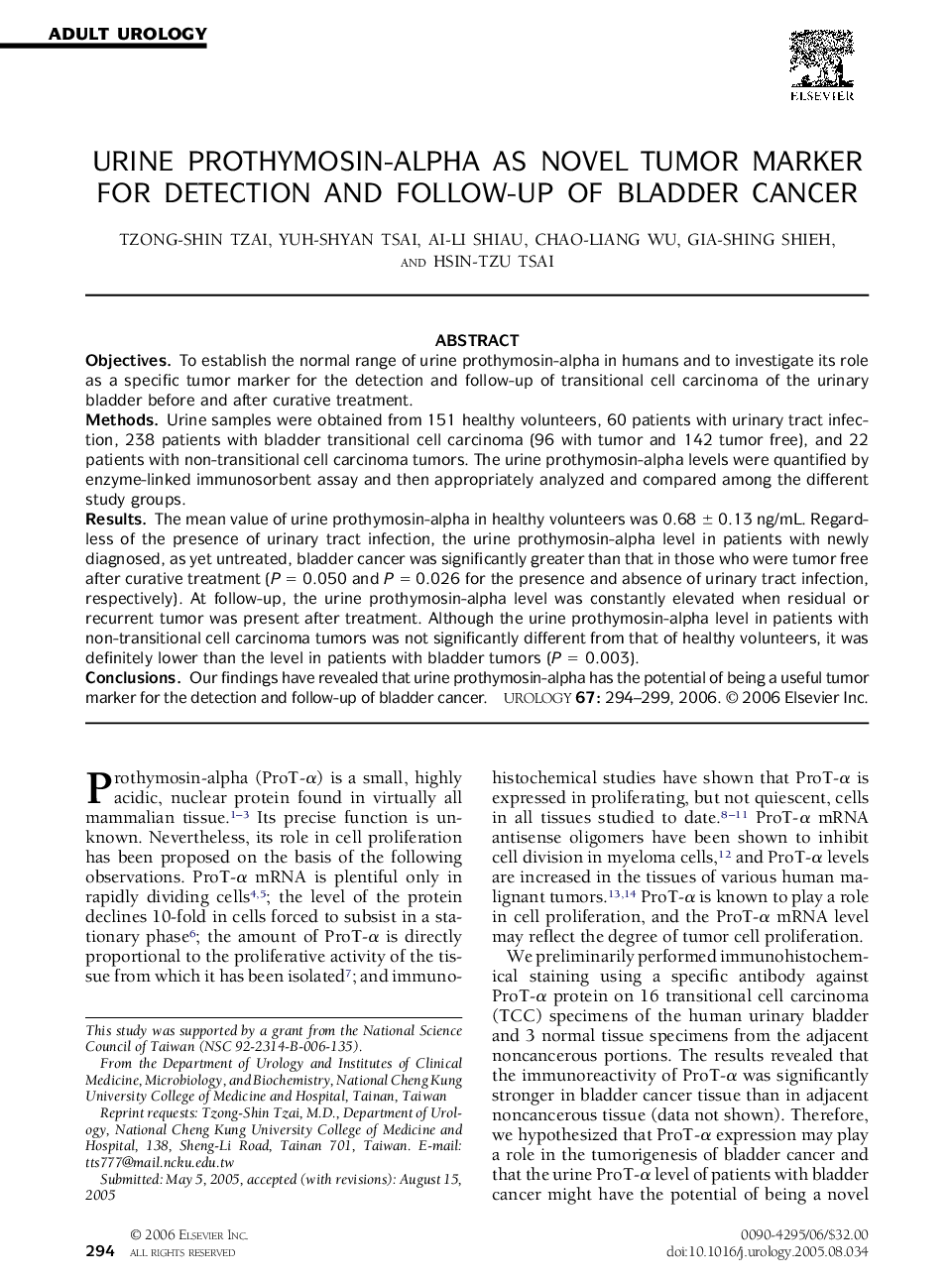| Article ID | Journal | Published Year | Pages | File Type |
|---|---|---|---|---|
| 3906775 | Urology | 2006 | 6 Pages |
ObjectivesTo establish the normal range of urine prothymosin-alpha in humans and to investigate its role as a specific tumor marker for the detection and follow-up of transitional cell carcinoma of the urinary bladder before and after curative treatment.MethodsUrine samples were obtained from 151 healthy volunteers, 60 patients with urinary tract infection, 238 patients with bladder transitional cell carcinoma (96 with tumor and 142 tumor free), and 22 patients with non-transitional cell carcinoma tumors. The urine prothymosin-alpha levels were quantified by enzyme-linked immunosorbent assay and then appropriately analyzed and compared among the different study groups.ResultsThe mean value of urine prothymosin-alpha in healthy volunteers was 0.68 ± 0.13 ng/mL. Regardless of the presence of urinary tract infection, the urine prothymosin-alpha level in patients with newly diagnosed, as yet untreated, bladder cancer was significantly greater than that in those who were tumor free after curative treatment (P = 0.050 and P = 0.026 for the presence and absence of urinary tract infection, respectively). At follow-up, the urine prothymosin-alpha level was constantly elevated when residual or recurrent tumor was present after treatment. Although the urine prothymosin-alpha level in patients with non-transitional cell carcinoma tumors was not significantly different from that of healthy volunteers, it was definitely lower than the level in patients with bladder tumors (P = 0.003).ConclusionsOur findings have revealed that urine prothymosin-alpha has the potential of being a useful tumor marker for the detection and follow-up of bladder cancer.
